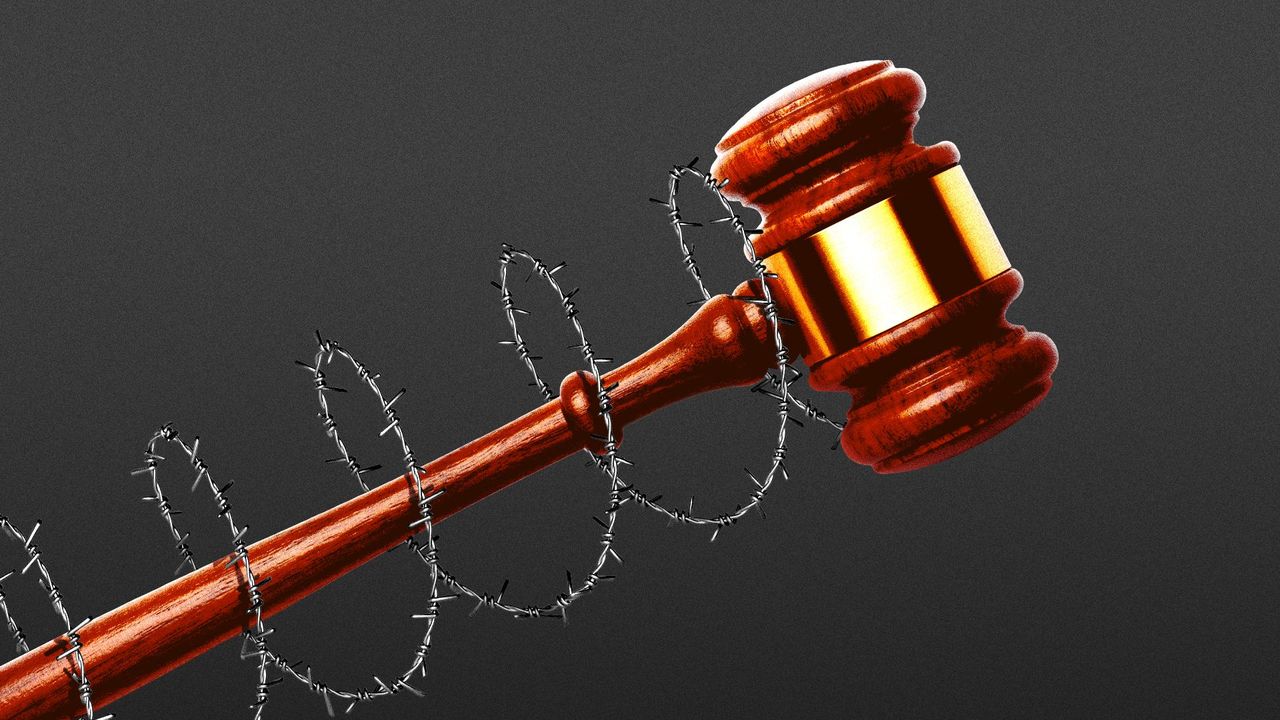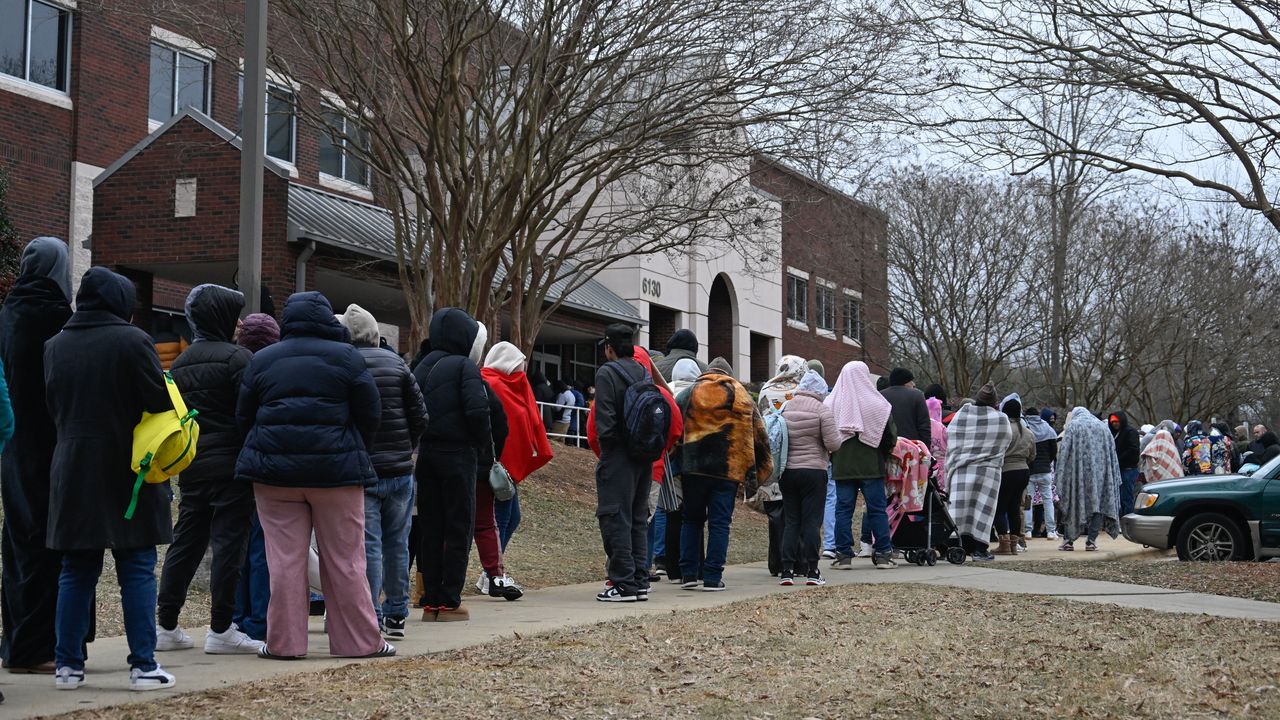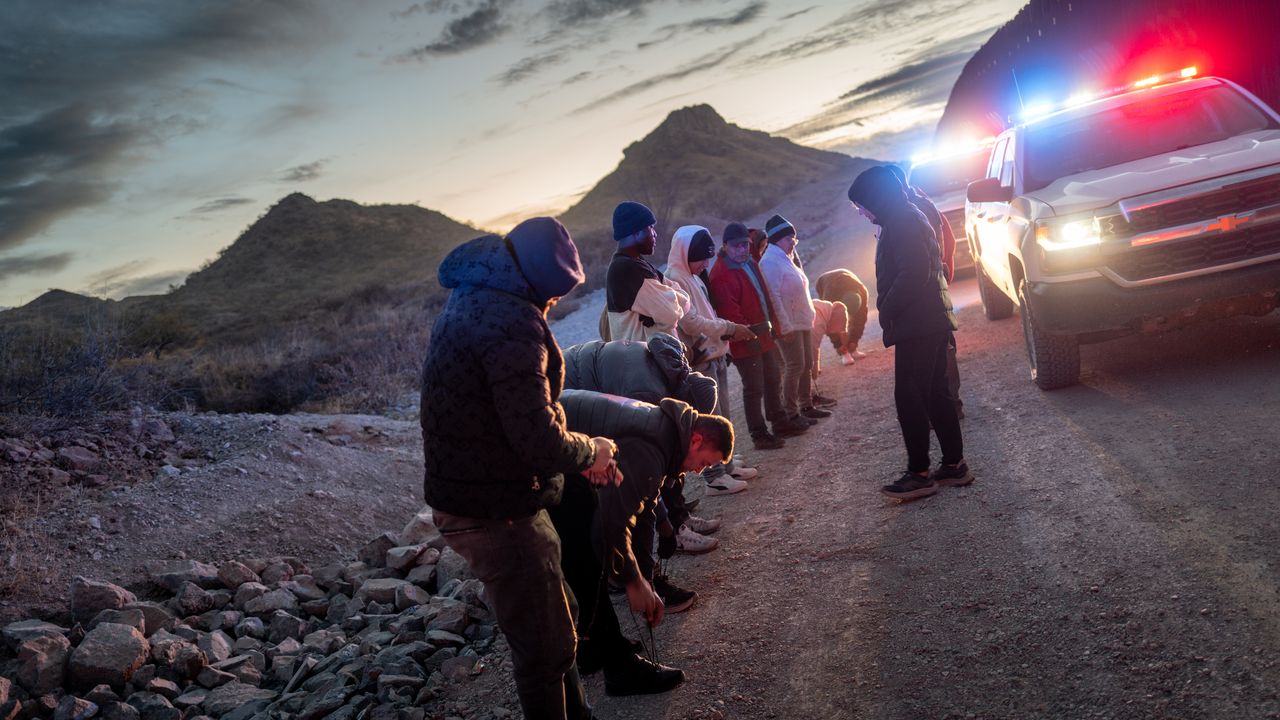Scoop: Trump's immigration arrests appear to lag Biden's
U.S. agents arrested more than 21,000 unauthorized immigrants in November as President Biden's term wound down — a pace the Trump administration doesn't appear to be matching in its first month despite its crackdown, an Axios review of new data finds.
Why it matters: Trump's border czar, Tom Homan, says about 14,000 immigrants have been arrested in the three-plus weeks since President Trump took office.
- One possible reason Trump's arrest rate isn't matching Biden's: The publicity surrounding the new president's tough talk on immigration has fueled a dramatic dip in the number of people trying to enter the U.S. illegally on the southern border.
- Homan said this week that illegal border crossings have dropped 92% since Trump took office Jan. 20.
The big picture: The Trump administration, through social media posts, has suggested U.S. Immigration and Customs Enforcement (ICE) arrested about 8,500 immigrants suspected of being in the country illegally during Trump's first two weeks in office.
- But Trump's team has stopped giving daily ICE updates since Feb. 4. The administration also isn't releasing details on arrests by Customs and Border Protection (CBP) agents.
By the numbers: ICE arrested more than 7,500 immigrants in November, while the CBP arrested more than 13,500 that month as waves of immigrants tried to cross the border, according to federal data collected by the Transactional Records Access Clearinghouse (TRAC).
- TRAC collects immigration data via Open Records Act requests.
- A total of 21,130 people arrested by the agencies were booked into detention sites across the country in November, the data show.
The intrigue: Homan told WABC radio in New York on Tuesday that of the 14,000 or so immigrants arrested since Trump took office, the "vast majority have criminal histories."
- He did not offer any details.
Tricia McLaughlin, assistant secretary for public affairs at the Department of Homeland Security, said Homan's arrest estimate was just for those done by ICE, though he didn't make that distinction.
- She didn't provide information about the arrest breakdown between ICE and CBP. People arrested by either agency eventually are held at ICE detention sites, where space is nearing capacity.
- The White House declined to comment.
Reality check: Federal numbers in recent years have shown that less than 1% of people with deportation orders had been convicted of dangerous crimes.
- About 60% of the 39,152 people held in ICE detention as of Dec. 29 had no criminal record, according to TRAC.
- The Trump administration has said it considers every arrestee who's in the U.S. without authorization to be a criminal, but just being in the country illegally is a civil violation — not a criminal one — under the law.
Between the lines: Trump's administration has accelerated immigration enforcement in the nation's interior, with ICE raids in cities and towns away from the U.S.-Mexico border.
- Trump's immigration crackdown isn't just about making arrests. It's about choreography, photo ops, wardrobe changes and tough talk — all designed to discourage undocumented people from wanting to be in the U.S.























